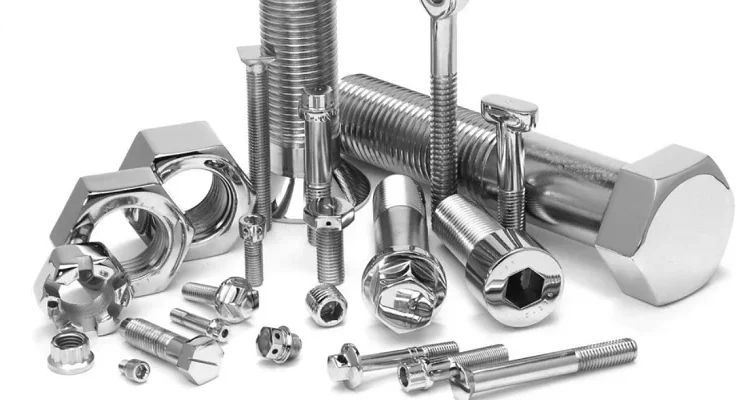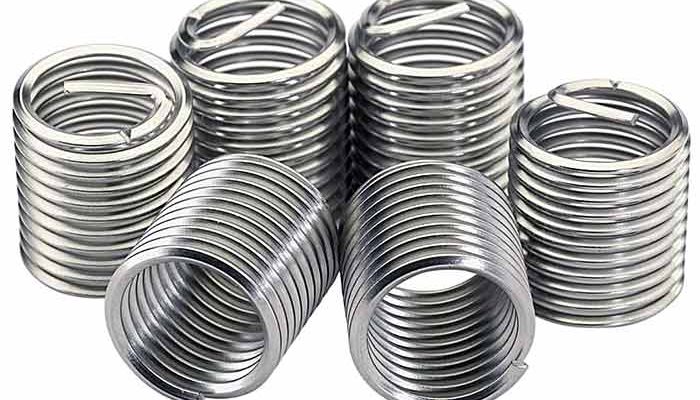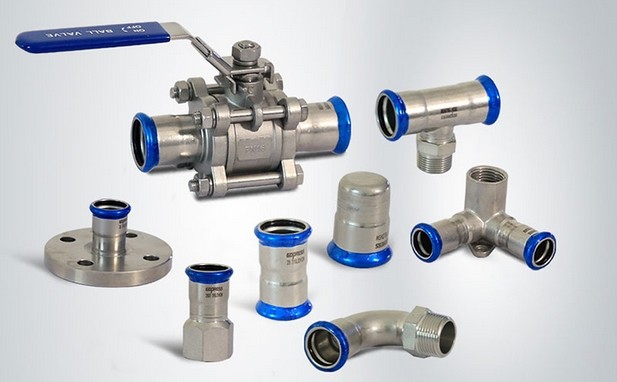
5 Key Benefits Of Using High-Quality Fasteners
High-quality fasteners ensure safety, enhance durability, reduce maintenance costs, meet stringent standards, and increase overall product reliability
Enhanced Safety and Reliability
Fasteners of high quality are vital in ensuring the structural integrity and safety of different products and installations. This is typically relevant for critical applications, where the failure of fasteners may lead to significant hazards. For example, in cases of fastener failure in automotive, aerospace, and construction, the operation of objects may be compromised and cause physical damage. Because fasteners are commonly made from lower quality materials to reduce costs and prices, they need to be protected against failure.
Automotive Hazard
The best example is the automotive industry, where fasteners are subjected to extreme conditions, high vibrations, and temperature changes. In fastener design analysis, a group of researchers found that with high-grade titanium fasteners, the probability of failure of the engine assembly was low. Compared to the lower quality fasteners, these materials were more heat resistant and have better mechanical properties, ensuring lower susceptibility to the hot environment of the engine. Typically, high-grade bolts that were used in the engine of the same model could stand up to 1,500 psi unlike the 900 psi of lower quality fasteners.
Aerospace Reliability
The reliability of aerospace fasteners is given because of the dangers of the faults and failure, such as accidents. According to ANSI/NAS standard, aerospace fasteners should have high shear strength, corrosion resistance, and construction in order to be considered reliable. A case was reported on the survivability of the commercial airplane, which went through an instance of severe mechanical stress. Evidently, the third wing fastening, which remained on the airplane, was made from modern fasteners according to the ANSI/NAS standard.
Construction Safety
Construction also has standards for load-bearing structures and their construction with certified high-quality fasteners. IBC declared that all fasteners used for load-bearing structures should comply with specific standards of the 8th grade. After Joplin tornado report published by NCST, it was evident that several buildings and their load-bearing elements still stood after the problematic circumstances. Some of the buildings withstood the rush of the wind, which speed exceeded 200 miles per hour.
Longer Service Life and Durability
High-quality fasteners are designed to serve for a longer time than other types due to the high level of engineering activities implemented by their producers. It is crucial for applications in which the reliability of connections should be long-term. The construction and aerospace industries are the areas for which the duration of coverage is essential as they are characterized by considerable repair and maintenance costs.
Corrosion Resistance
High-quality fasteners are created from materials that are highly resistant to corrosion, making them usable in aggressive environments, such as areas exposed to chemicals or severe weather. A study into the service life of fasteners in the coastal environment has shown that 316 stainless steel fasteners are capable of preserving their appearance and structural characteristics for a significant time. Unlike 304 stainless steel fasteners, which begin to degenerate in approximately 10 years, 316 fasteners can last for over 20 years.
Material Consistency
Materials used for high-quality fasteners are of high and consistent quality. The similar characteristics of a particular type of steel ensure that samples of fasteners used in high-pressure applications all have the same ability to survive rough conditions. A small change in the quality, such as even slightly altered alloy composition, is critical in the case of high-pressure systems as it may be subjected to pressures of 2,000 psi and above without deforming and posing a threat to the environment.
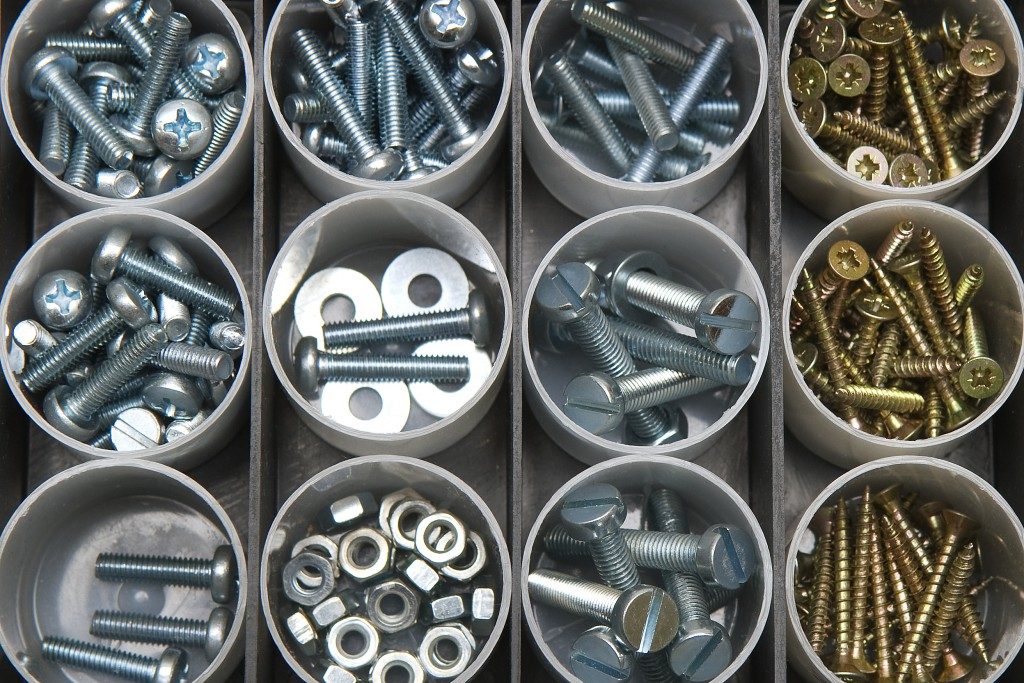
Types of Construction Fasteners
Load Handling Capabilities
High-quality fasteners are built to serve for a longer time due to the better handling of loads. A comparative analysis of the construction industry has shown that Grade 8 fasteners are 1.25 times as durable under load as Grade 5 fasteners. It allows the fasteners supporting structures to guarantee the safety of the materials and workers supported by the structures, even when they are under stress.
Wear and Tear Resistance
High-quality fasteners are also built in a more precise manner, which makes them less subjected to wear and tear. In the automotive industry, fasteners are often used in applications in which screwing and unscrewing are required, causing wear and tear of the fasteners. High-quality fasteners are used in the industry due to their ability to withstand the pressure and serve for a longer time without being replaced too often.
Temperature and Vibration Resistance
High-quality fasteners experience a process of receiving off-the-shelf heat treatment that enhances their ability to survive in high temperatures and under the influence of vibration. Tests of engines have shown that treated fasteners are not damaged at temperatures of more than 500° F. Fasteners also experience checking that allows them to survive in high-vibration modes that may be faced by machines at high-operation period.
Long-term Cost Benefits
Investing in high-quality fasteners allows an impressive long-term saving cost for businesses in multiple spheres. Those savings derive from reduced maintenance needs, not needing to expend money on replacement costs, and decreased overall downtime due to machinery failure.
Reduced Maintenance Costs
Quality fasteners are additional unlikely to degrade or fail. If a machinery item or structure has used high-quality fasteners, it is less in need to repair or maintenance. For example, the construction industry estimates that construct using a Grade 8 fastener has 30% reduced maintenance needs for its machinery and structure throughout ten years, in contrast to the Grade 5 fasteners. Such structuring is a widespread example of the significance of reduced maintenance costs and hiding savings.
Decreased Downtime
Downtime in an industrial setting costs money, because failing machinery or equipment halts the production flow. Quality fasteners are a decisive part of more reliable machinery and equipment, making them additional less likely to stop. Studies carried in the automotive manufacturing industry estimated that the high-quality fasteners had 20% decreased risks of production stoppage, which meant savings of tens of thousands of dollars per hour at stake.
Longer Replacement Intervals
Quality fasteners do not need changing as often as lower grade ones. Reliability and precision are especially vital in the aerospace industry, and high-grade fasteners are able to be in use for more than a decade, in contrast to an average 5-year lifespan for lower-grade alternatives. Long interval and not needing to replace a quality fastener reduces the overall labor cost. Moreover, the purchasing cost for now redundant fasteners also becomes a long-term saving.
More Efficient Machinery Performance
Durable equipment that does not break is running a more efficient operation. Suitable fasteners guarantee that no machinery or equipment parts will be out of place or less than perfect, which means that said parts will function more efficiently. For example, rather than arm with standard fasteners, turbines which used premium fasteners showed a 15% increase in efficiency — which decreased how much the energy-producing cost decreased for end customers.
Insurance and Liability Reduction
Lastly, using low-quality fasteners that will guarantee a problem and a machinery failure constitutes an increased insurance liability. There is a higher incidence of failure, and some insurance companies do not even cover regular use of standard fasteners. On the other hand, companies that are able to prove their usage of safe and high-quality instruments when conducting operations are less of a payable liability for insurance companies. One case study showed that companies using quality fasteners saw their insurance premiums go down 5% to 10% for the decreased risk of failure or accidents.
Compliance with Industry Standards
High-quality fasteners are produced as per or in the certain cases outstrip rigorous industry standards. These standards are essential for safety, reliability, and compatibility in every possible application and cover everything from material to testing and the inspection of finished goods.
Standard of Material
Fasteners are typically required to be made from certain materials that have the correct strength and resistance properties for the use it was designed for. Aerospace fasteners, for example, are required to flush head to SAE AMS standards, which list corrosion-resistant steel or titanium as appropriate materials for critical applications. This standards assure that these fasteners will not fail under extreme circumstances, preventing catastrophic failure of airplanes.
Manufacturing Process Standards
Standards such as ISO 9001 for quality management and the more product-specific ISO/TS 16949 for the automotive industry quality management system ensure that every fastener produced as per the designed order and in required quality. The manufacturers which are certified by these institutes are subject to application to standard rigorous testing, inspection, and auditing with every fastener produced being tested from the raw material to the finished part.
Testing Standards
High-quality fasteners are tested as to ensure that they conform to certain requirements. Tensile strength, hardness, and the resistance to fatigue tests which may be found in ASTM and ISO standards and in company or product-specific standards are typical of these tests. ASTM F606/F606M, for instance, describes these methods for determining the tensile and proof load properties of the threaded fasteners. Compliance with such standards assures that these fasteners will not fail to perform as they should do their job.
Certification and Traceability
High-quality fasteners are always certified and come accompanied by traceability records. In cases where the specific industry regulations are in place, such as construction or medicine, these records assure that the fasteners conform to exacting standards and create a path to the specific batch they were produced from. This is especially important to trace the exact production parameters in case a product fails and for quality control and standardization purposes.
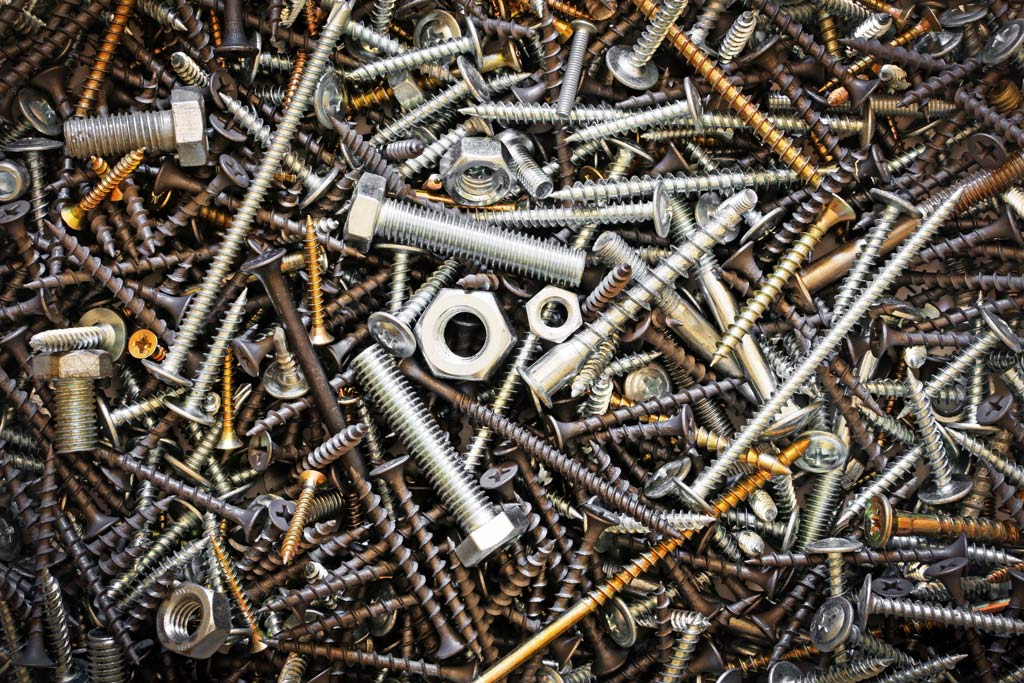
Why Don’t all Screws Have
Improved Product Performance
Products of high quality fasteners are superior in their performance by higher assembly integrity, active resistance to environmental factors and better process. In industries, where product performance directly reflects the safety and success importance of this improvement should not be underestimated.
Higher Assembly Strength
A product, constructed with high-quality fasteners assembled during the construction and manufacturing processes, will have a longer life span. For instance, in the construction of bridges the use high-tensile strength fasteners allows for the bridge to be able to carry bigger loads. It was shown by the research that with the use of 8.8 grade fasteners, which are known to have high yield strength, a bridge becomes 20% stronger than the one assembled the standard 4.6 grade bolts.
Active Resistance
When fasteners are engineered with high level alloys, environmental stress resistance is enhanced, and its life is prolonged. An example of this would the use of a 316 grade stainless steel fastener containing molybdenum, in the construction of ships or oil-rigs, instead of 304 stainless steel fastener. The ship would be more resilient to rust and other forms of rusting, therefore significantly lowering the chance of a structural failure.
Process
A high-quality fastener installation allows for the mechanical systems to operate better and decrease the chances of technical failure. In the construction of automobiles, the use of higher grade nuts and bolts will give the engine a better chance of life long performance. In fact, a testing of a regular engine and an engine consisting of 10.9 class fasteners showed a 30% increase in technical failure percentage in 100,000 mile run. In this case, the 10.9 classes fasteners were used, whereas the standard variant is 8.8 classes nuts and bolts.
Reduced Wear
torque and higher loads on machinery systems, the effect of wear and tear is higher in machines using standard fasteners. When a machine has higher grade fasteners, they are more likely to resist breakage, and looseness, extending the system’s life. In a scenario, where a typical machinery’s uptime is 100 hours a week, using a fastener grade meeting through ASTM A574 grades will allow up to 25% additional on-task time in lue of maintenance.
Simultaneous Effect on Aesthetic and Functional Quality
For machines and products using smaller sized, but higher grade fasteners are both superior from the constructional point of view and the amount of resources saved, let alone the aesthetic appeal. Devices assembled with this type are highly marketable, because maintain high standards in device length and build, perceived by customer as a higher quality product.

